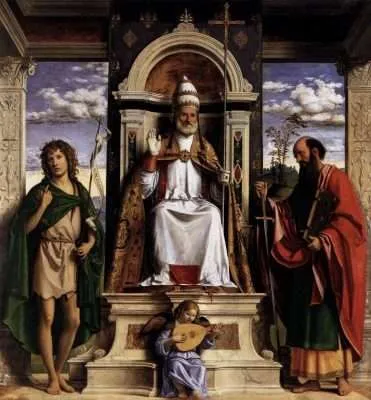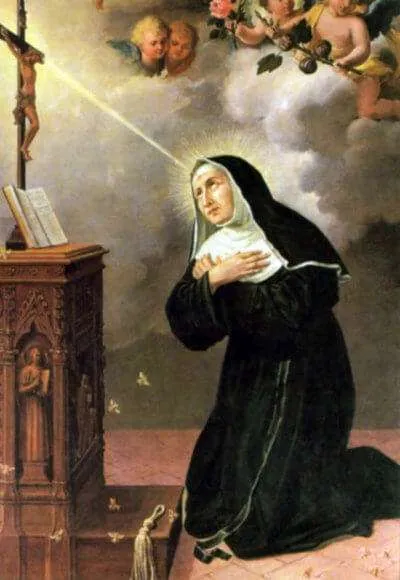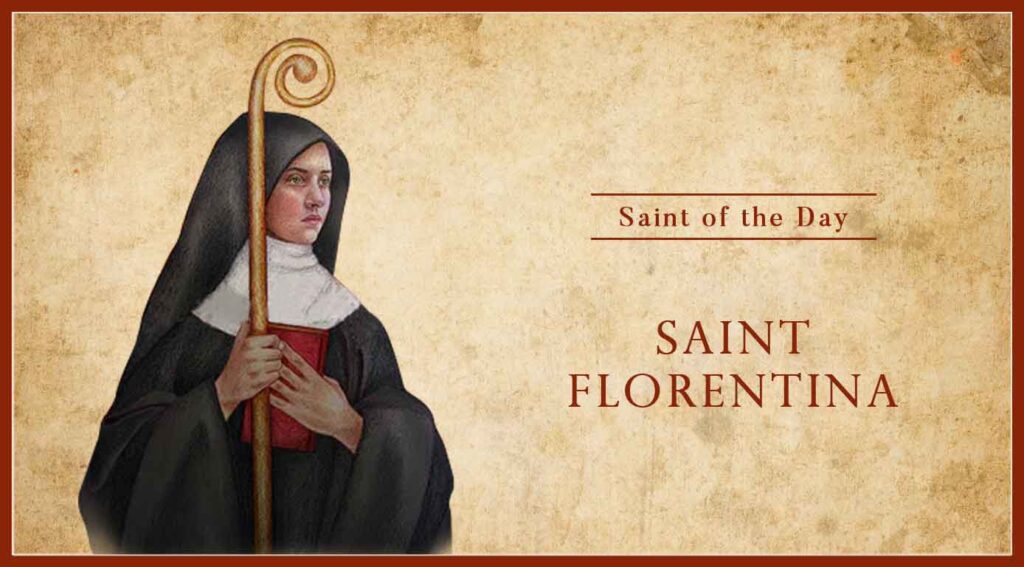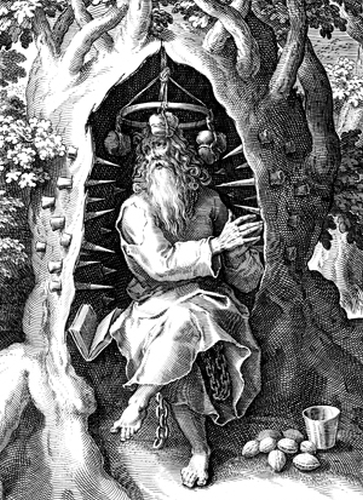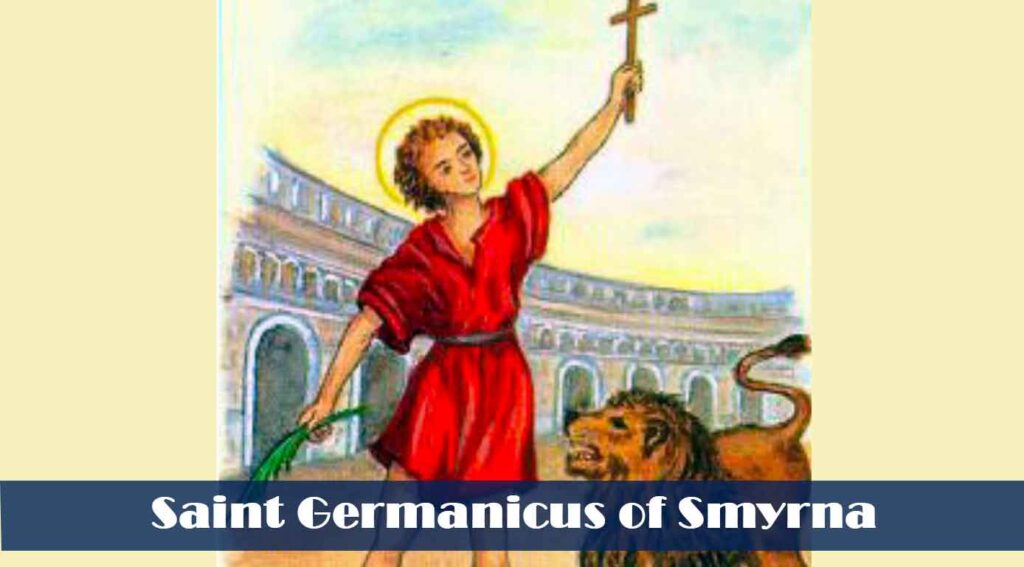In Saint Peter’s Basilica in Rome, visitors are immediately struck by the large alabaster window on the back wall of the apse that depicts the Holy Spirit in the form of a dove. Below the window is an ancient wooden chair, believed to have been used by Saint Peter. In the seventeenth century, that ancient chair was encased in bronze by the famous artist Bernini and then placed above the altar in the apse.
Surrounding the chair are statues of four early Doctors of the Church. Two of them represent the Eastern Church: Saint John Chrysostom and St. Athanasius. Two of them represent the Western Church: Saint Ambrose and Saint Augustine. These great saints represent the universality of the Church, both East and West, as well as the unity of their theological teaching with the authority of the Bishop of Rome.
Above the chair are two angels jointly holding the triple crown tiara used by the Bishop of Rome, symbolizing that he is the father of kings, governor of the world, and Vicar of Christ. In their other hands, each angel holds a key, symbolizing the authority of the Bishop of Rome in matters of faith and morals.
Today’s feast celebrates not only that chair as a precious relic from the time of Saint Peter, it also celebrates all that this chair represents. This feast was formally celebrated in Rome as early as the fourth century, but honor for the supremacy of Saint Peter and his successors was celebrated from the moment Jesus entrusted Peter with his unique mission.
In the Gospel of Matthew 16:13–20, we have the discourse between Jesus and His disciples, which is the basis of today’s feast and our belief in the unique and universal authority of Saint Peter and his successors. Jesus asked the disciples, “[W]ho do you say that I am?” Simon responded, “You are the Messiah, the Son of the living God.” With that profession of faith, Jesus changed Simon’s name to Peter, saying to him, “And I tell you, you are Peter (Petros), and on this rock (petra) I will build my church.”
“Peter” in Greek is Petros, meaning a single movable stone. The Greek word petra means a solid rock formation that is fixed, immovable, and enduring. Therefore, Jesus chose to transform Peter from a single stone into a solid, fixed, and immovable foundation of rock on which the Church would be built and endure until the end of time. Jesus went on to tell Peter that He would give him the keys to the Kingdom of Heaven and that whatever he bound and loosed on earth would be bound and loosed in Heaven.
It’s interesting to note that immediately after this discourse between Jesus and Peter, Jesus rebukes Peter for giving into fear after Jesus spoke about His impending death. While in the Garden of Gethsemane, on the eve of Jesus’ saving Passion, Peter chooses to sleep rather than stay awake and pray with Jesus. Then, after Jesus is arrested, Peter denies three times that he even knows Jesus. God chose a man of weakness and fear to become the rock foundation for the Church. This shows that God’s power is not limited by the instruments to whom He entrusts His power.
After Jesus’ ascension into Heaven, Peter and the others are filled with the Holy Spirit at Pentecost. After this gift, Peter is more prepared for his mission. He is the first one to go forth courageously to preach the Word of God to the people in Jerusalem. He resolved conflicts within the Church when they arose. He became the first bishop of the newly evangelized city of Antioch and then chose to go to Rome, becoming the first bishop of Rome, where he would die a martyr. However, the death of Saint Peter was not the death of his authority and singular mission. Saint Linus followed him as the second bishop of Rome, and then Saint Cletus, Saint Clement, and so forth until today.
Of the pope’s authority, Vatican Councils I and II affirmed that when the pope speaks Ex Cathedra, meaning, “From the Chair,” he speaks with the authority of Saint Peter who was entrusted with full, supreme, and universal authority to teach and govern. His teaching extends to all matters of faith and morals, and his governance encompasses the entire world. (Lumen Gentium, #22).
As we ponder the authority and infallibility of the one who sits in the Chair of Saint Peter, try to see this sacred power, given to one weak and sinful man after another, as an act of the love of Christ for His Church. It is the power of Christ and His divine love that makes it possible for these men to shepherd the Church, providing stability, longevity, certitude, and hope.
When popes are also saints, we are doubly blessed. When they are not, our Lord still works through them, providing the Church with the ongoing rock foundation it needs to endure all things until the end of time. Pray for the pope today. Pledge your obedience to him when he speaks Ex Cathedra, and know that your unity with him ensures your unity with Christ, Who governs through him.
Source: https://mycatholic.life/saints/saints-of-the-liturgical-year/february-22-chair-of-saint-peter-apostle/


